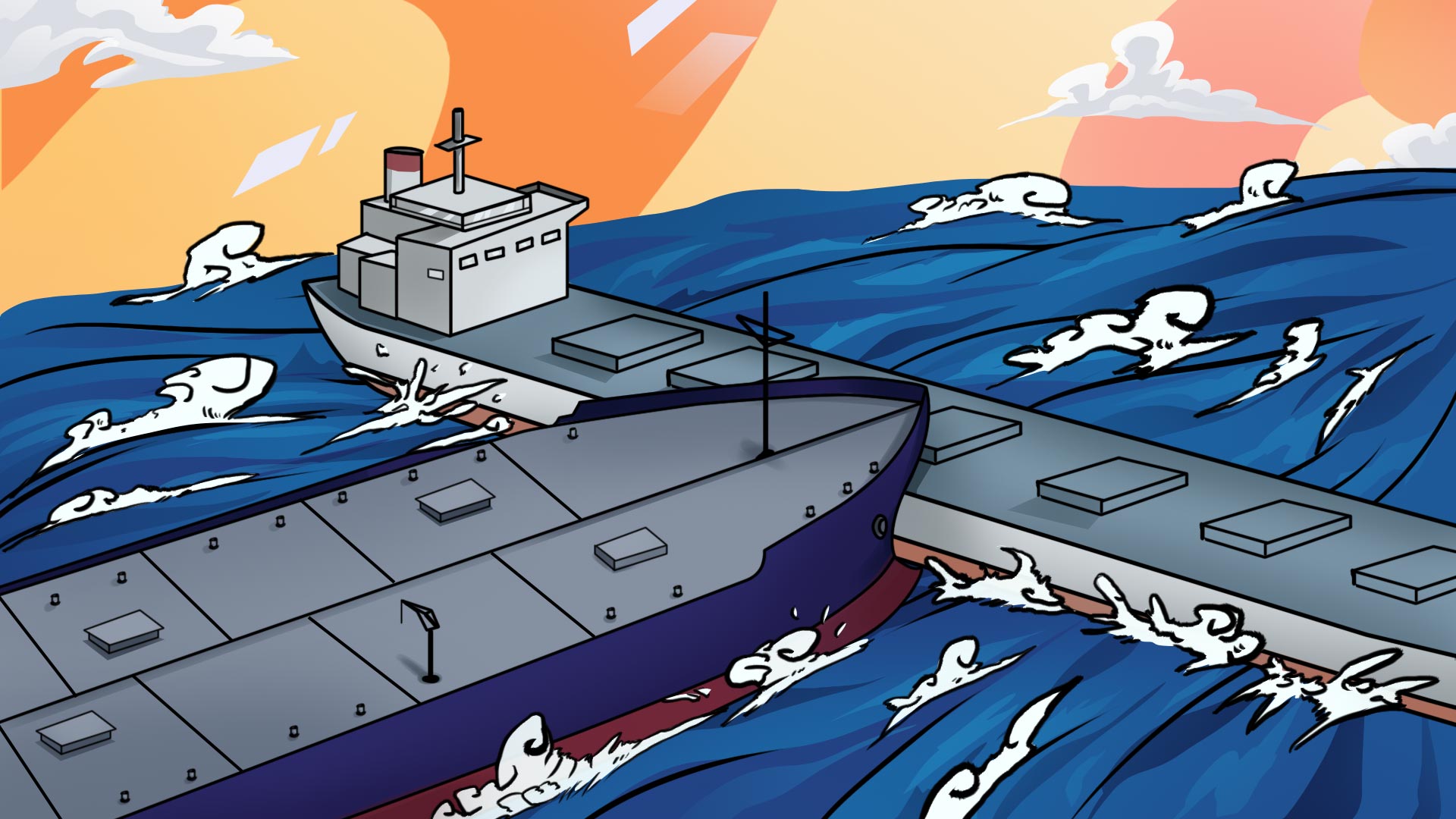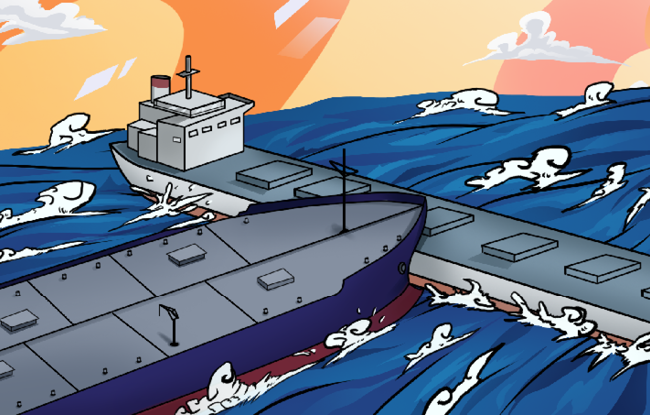- Arbitration
- Banking & Finance
- Capital Markets
- Commercial
- Competition
- Construction & Infrastructure
- Corporate / Mergers & Acquisitions
- Corporate Services
- Corporate Structuring
- Digital & Data
- Dispute Resolution
- Employment & Incentives
- Family Business & Private Wealth
- Innovation, Patents & Industrial Property (3IP)
- Insurance
Find a Lawyer
Book an appointment with us, or search the directory to find the right lawyer for you directly through the app.
Find out more
Level Up: Unlocking Financial Potential In The Middle East
Welcome to this edition of Law Update, where we focus on the ever-evolving landscape of financial services regulation across the region. As the financial markets in the region continue to grow and diversify, this issue provides timely insights into the key regulatory developments shaping banking, investment, insolvency, and emerging technologies.


2025 is set to be a game-changer for the MENA region, with legal and regulatory shifts from 2024 continuing to reshape its economic landscape. Saudi Arabia, the UAE, Egypt, Iraq, Qatar, and Bahrain are all implementing groundbreaking reforms in sustainable financing, investment laws, labor regulations, and dispute resolution. As the region positions itself for deeper global integration, businesses must adapt to a rapidly evolving legal environment.
Our Eyes on 2025 publication provides essential insights and practical guidance on the key legal updates shaping the year ahead—equipping you with the knowledge to stay ahead in this dynamic market.
The leading law firm in the Middle East & North Africa region.
A complete spectrum of legal services across jurisdictions in the Middle East & North Africa.
-
Practices
- All Practices
- Banking & Finance
- Capital Markets
- Commercial
- Competition
- Construction & Infrastructure
- Corporate / Mergers & Acquisitions
- Corporate Services
- Corporate Structuring
-
Sectors
-
Country Groups
-
Client Solutions
Today's news and tomorrow's trends from around the region.
17 offices across the Middle East & North Africa.
Our Services
 Back
Back
-
Practices
- All Practices
- Banking & Finance
- Capital Markets
- Commercial
- Competition
- Construction & Infrastructure
- Corporate / Mergers & Acquisitions
- Corporate Services
- Corporate Structuring
- Digital & Data
- Dispute Resolution
- Employment & Incentives
- Family Business & Private Wealth
- Innovation, Patents & Industrial Property (3IP)
- Insurance
- Intellectual Property
- Legislative Drafting
- Private Client Services
- Private Equity
- Private Notary
- Projects
- Real Estate
- Regulatory
- Tax
- Turnaround, Restructuring & Insolvency
- White Collar Crime & Investigations
-
Sectors
-
Country Groups
-
Client Solutions

- Law Firm
- /
- Insights
- /
- Law Update
- /
- Transport & Logistics
- /
- Ship Collisions in the UAE
Ship Collisions in the UAE
Yasser Madkour - Partner - Shipping, Aviation & Logistics
Gabriel Yuen - Associate, Transport, Trade & Logistics
Introduction
Contrary to popular belief, ship collisions occur more frequently than expected. In this article, we summarise some key legal principles concerning ship collision under UAE law, with reference to local and international law.
Legal Sources
As in the case with almost any legal issues on maritime matters in the UAE, the starting point would be the UAE Federal Law No. 26 of 1981 (the “Maritime Law”). The section of the Maritime Law dedicated to ship collision are from Articles 318 to 326, which apply to all collisions between sea-going vessels, to compensate for damage occasioned by one vessel to another vessel, object or person on board that vessel if the damage arises out of the manoeuvring, or the negligence or failure to observe national or international law.
Although the UAE has not ratified the Convention for the Unification of Certain Rules of Law with respect to Collisions between Vessels 1910 (the “1910 Convention”), Articles 318 to 326 of the Maritime Law are worded similarly to Articles 1 to 8 of the 1910 Convention, which touch upon the following issues:
(i) Definition of Ship Collision;
(ii) Liability Apportionment;
(iii) Duty of Ship Master; and
(iv) Jurisdiction.
In addition, the UAE has ratified the Convention on the International Regulations for Preventing Collisions at Sea 1972, as amended (“COLREGs”). Therefore the COLREGs forms part of the UAE body of law in respect of ship collision.
Situations of Collisions
The definition of ship collision is found in Article 318 of the Maritime Law, which may be compressed into a physical collision occurring between a sea-going vessels, boats navigating in the inland waters, as well as any floating object not moored at a fixed anchor. Accordingly, ship (or maritime) collision under UAE law excludes collisions between a ship against a wharf, a bridge, a sinking sea-going vessel, or rocks. The general provisions of liability such as Article 282 of the UAE Federal Law No. 5 (the “Civil Transactions Law”) shall apply in such instances. Collisions between a towboat and the towed vessel is not governed by the Maritime Law but by the relevant contract between them.
Fault and Liability
In the context of UAE maritime collision, fault may largely arise from either the failure to observe the applicable laws, or from negligence. In a discussion of fault in ship collisions, it is necessary to consider the COLREGs as well. The apportionment of the vessels’ liabilities follows from an assessment of fault. Where at least two of the colliding vessels have fault, Article 322 of the Maritime Law stipulates that the liability of each vessel shall proportionate to its fault unless the circumstances render it impossible for such assessment to be made, in which case the UAE Court would apportion the liability between them equally.
Where a ship collision occurs due to a force majeure (act of God) event, or where the cause cannot be determined following an investigation by the relevant authorities, each vessel shall bear the loss which it has suffered (Article 319 of the Maritime Law). Under UAE law, a force majeure event can be simply said to be an event that is unforeseeable, which ultimately comes down to the facts of the matter.
Jurisdiction
Article 325 of the Maritime Law provides that a claimant in a ship collision matter may commence an action in against the defendant at:
(i) The Court of the country where the defendant is domiciled;
(ii) The Court of the country (or city) where the defendant’s vessel is registered; or
(iii) The Court of the country where the ship was arrested took place.
Notwithstanding the above, Article 325 of the Maritime Law permits the parties to agree on how they wish to resolve their dispute, by mutually agreeing on a forum or even submitting to arbitration.
Time Bar
Where there is no death of bodily injuries in a ship collision, the limitation period would run from 2 years from the date of the collision. The limitation period is 1 year if there is death of bodily injury (Article 326 of the Maritime Law). However, a claimant may still overcome the time bar if the defendant does not attempt to strike out the claim owing to time bar at its first opportunity to do on the basis that the claim is time barred.
Investigations
When a ship collision occurs, the local authorities would commence investigations on the collision. Typically, the investigations are as follows:
(i) Administrative Investigation (carried out by the Federal Transport Authority);
(ii) Civil Investigation (carried out by the Civil Courts); and
(iii) Criminal Investigation (carried out by the Public Prosecutors).
Al Tamimi & Company’s team regularly advises on maritime and shipping matters. For further information please contact Yasser Madkour, or Gabriel Yuen.
Stay updated
To learn more about our services and get the latest legal insights from across the Middle East and North Africa region, click on the link below.



